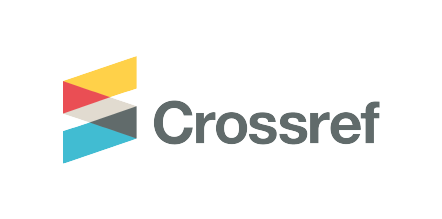Online Game, Addiction and Learning Achievement of Senior High School Students in Jakarta
DOI:
https://doi.org/10.21776/ub.ijds.2020.007.02.03Keywords:
Addiction, Learning achievement, Online game, StudentAbstract
Online game problems being a global concern because of the risk of having a negative impact in school-age children. Game online addiction is the excessive use of computers or video games due to urges that cause social or emotional problems. This research aims to identify the relationship between online game problems and learning achievement in senior high school students in Jakarta. This research is a quantitative study with a Cross-Sectional approach. The sampling method uses a technique of purposive sampling. The number of respondents in this study was 95 senior high school students at x public school, Central of Jakarta. The result of the bivariate analysis showed that there was no significant relationship between online gaming problems and learning achievement of a high school students in Jakarta (p-value = 0.242). The implication of this research shows that online gaming problems are not the only factor that can affect the learning achievement of high school children. The other factors that are likely to influence children's learning achievement include self-motivation, family social support, and the school social environment. Recommendation for parents to supervise their children in using gadgets and the school can strengthen the rules for using gadgets in schools.
References
Alam, S. S., Hashim, Nik Mohd. Hazrul Nik Ahmad, M., Wel, Che Aniza Chel Nor, S. M. N., & Omar, N. A. (2014). Negative and positive impact of internet addiction on young adults: Empericial study in Malaysia. Omnia Science, 3(10), 619-638. https://doi.org/10.4090/juee.2014.v8n1.118133
Amini, S. (2012). Hubungan perilaku kecanduan game online dengan prestasi belajar siswa di SMPN 4 Padang tahun 2012. Jurnal Warta Pengabdian Andalas.
Anggarani, F. K. (2015). Internet gaming disorder: Psikopatologi budaya modern. Buletin Psikologi, 23(1), 1-12. https://journal.ugm.ac.id/buletinpsikologi/article/view/10572/7967.
Bavelier, D., Green, C. S., Han, D. H., Renshaw, P. F., Merzenich, M. M., & Gentile, D. A. (2011). Brains on video games. Nature Reviews Neuroscience, 12(12), 763-768. https://doi.org/10.1038/nrn3135.
Brawer, J. W., & Buckwalter, J. G. (2015). Violent video games may kill your short-term focus: Violent video games may negatively affect a player's attention and concentration on a short- term basis after brief exposure. Journal of Young Investigators, 29(3), 7-10.
Chen, K. H., Oliffe, J. L., & Kelly, M. T. (2018). Internet gaming disorder: An emergent health issue for men. American Journal of Men's Health, 12(4), 1151-1159. https://doi.org/10.1177/1557988318766950.
Conrad, B. (2013). Why are video games addictive? Principles of Addiction, 819-825. https://doi.org/10.1016/B978-0-12-398336-7.00082-6.
Damaiyanti, M., & Rahmah, D. F. (2017). The relation of educational level, academic achievement (GPA) and depression among public school adolescent. Indonesian Journal of Nursing Practices, 1(3), 83-90. https://doi.org/10.18196/ijnp.1365.
Granic, I., Lobel, A., & Engels, R. C. M. E. (2014). The benefits of playing video games. American Psychologist Journal, 69(1), 66-78. https://doi.org/10.1037/a0034857
Kende, M. (2014). Internet society global internet report 2014. In Internet Society. http://www.internetsociety.org/doc/global-internet-report%5Cnhttps://www.internetsociety.org/sites/default/files/Global_Internet_Report_2014.pdf
Kholidiyah, U. (2013). Hubungan antara intensitas bermain game online dengan kecerdasan emosi. In Jurnal Ners.
Király, O., Griffiths, M. D., & Demetrovics, Z. (2015). Internet gaming disorder and the DSM-5: Conceptualization, debates, and controversies. Current Addiction Reports, 2(3), 254-262. https://doi.org/10.1007/s40429-015-0066-7.
Marius, P., & Pinontoan, F. (2013). Indonesian internet usage for bussiness sector 2013. Asosiasi Penyelenggara Jasa Internet Indonesia.
Marius, P., & Pinontoan, F. (2014). Indonesia internet usage for business sector 2013 (D. Herawan (ed.)). Asosiasi Penyelenggara Jasa Internet Indonesia. www.apjii.or.id
Motamedi, V., & Bakhtiary, L. (2014). The impact of computer games on creativity and academic achievement of students. Sky Journal of Educational Research, 2(3), 15-19.
Ng, B. D., & Wiemer-Hastings, P. (2015). Addiction to the Internet and online gaming. Cyberpsychology and Behavior, 8(2), 110-113. https://doi.org/10.1089/cpb.2005.8.110
Novrialdy, E. (2019). Kecanduan game online pada remaja: Dampak dan pencegahannya. Buletin Psikologi, 27(2), 148. https://doi.org/10.22146/buletinpsikologi.47402
Pande, N. P. A., & Marheni, A. (2015). Hubungan kecanduan game online dengan prestasi belajar siswa SMP Negeri 1 Kuta. Jurnal Psikologi Udayana, 2(2), 163-171.
Petry, N. M., Rehbein, F., Ko, C. H., & O'Brien, C. P. (2015). Internet gaming disorder in the DSM-5. Current Psychiatry Reports, 17(9), 0-9. https://doi.org/10.1007/s11920-015-0610-0
Soleymani, M. R., Garivani, A., & Zare-Farashbandi, F. (2016). The effect of the internet addiction on the information-seeking behavior of the postgraduate students. Materia Socio Medica, 28(3), 191. https://doi.org/10.5455/msm.2016.28.191-195
Downloads
Published
How to Cite
Issue
Section
License
Copyright (c) 2020 Lina Dewi Anggraeni, Hany Wihardja

This work is licensed under a Creative Commons Attribution-NonCommercial 4.0 International License.















